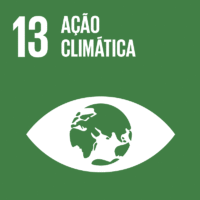Ciência_Iscte
Publicações
Descrição Detalhada da Publicação
Título Revista
Atmósfera
Ano (publicação definitiva)
2017
Língua
Inglês
País
México
Mais Informação
Web of Science®
Scopus
Google Scholar
Esta publicação não está indexada no Overton
Abstract/Resumo
Because of low-frequency internal variability, the observed and underlying warming trends in temperature series can be markedly different. Important differences in the observed nonlinear trends in hemispheric temperature series suggest that the northern and southern hemispheres have responded differently to the changes in the radiative forcing. Using recent econometric techniques, we can reconcile such differences and show that all sea and land temperatures share similar time series properties and a common underlying warming trend having a dominant anthropogenic origin. We also investigate the interhemispheric temperature asymmetry (ITA) and show that the differences in warming between hemispheres are in part driven by anthropogenic forcing but that most of the observed rapid changes is likely due to natural variability. The attribution of changes in ITA is relevant since increases in the temperature contrast between hemispheres could potentially produce a shift in the Intertropical Convergence Zone and alter rainfall patterns. The existence of a current slowdown in the warming and its causes are also investigated. The results suggest that the slowdown is a common feature in global and hemispheric sea and land temperatures that can, at least partly, be attributed to changes in anthropogenic forcing.
Agradecimentos/Acknowledgements
--
Palavras-chave
Climate change,Warming hiatus,Structural break,Co-trending,Principal component analysis
Classificação Fields of Science and Technology
- Ciências da Terra e do Ambiente - Ciências Naturais
Registos de financiamentos
| Referência de financiamento | Entidade Financiadora |
|---|---|
| UID/GES/00315/2013 | Fundação para a Ciência e a Tecnologia |
Contribuições para os Objetivos do Desenvolvimento Sustentável das Nações Unidas
Com o objetivo de aumentar a investigação direcionada para o cumprimento dos Objetivos do Desenvolvimento Sustentável para 2030 das Nações Unidas, é disponibilizada no Ciência_Iscte a possibilidade de associação, quando aplicável, dos artigos científicos aos Objetivos do Desenvolvimento Sustentável. Estes são os Objetivos do Desenvolvimento Sustentável identificados pelo(s) autor(es) para esta publicação. Para uma informação detalhada dos Objetivos do Desenvolvimento Sustentável, clique aqui.

 English
English


